Nvidia GeForce RTX 5070 Ti: Performance Reviewed
The Nvidia GeForce RTX 5090, upon its release, disappointed many with its modest performance gains over the RTX 4090, especially considering its significantly higher cost. In contrast, the Nvidia GeForce RTX 5070 Ti, while not offering a substantial speed boost over its predecessor, stands out as a more budget-friendly option within the Blackwell series. Priced at a base of $749, it emerges as an excellent choice for 4K gaming, effectively overshadowing the pricier RTX 5080. However, transparency is key: the RTX 5070 Ti model I reviewed is an aftermarket MSI version, which comes with a steeper price tag of $1,099, exceeding even the $999 RTX 5080. If you can secure the RTX 5070 Ti at its base price of $749, it's likely the best graphics card for the majority of users, particularly those eyeing 4K gaming.
Purchasing Guide
The Nvidia GeForce RTX 5070 Ti hits the market on February 20, 2025, starting at $749. Be aware, though, that this is just the starting price; various aftermarket models may carry a higher price tag. At $749, it's a compelling value, but its appeal diminishes as the price approaches that of the RTX 5080.
Nvidia GeForce RTX 5070 Ti – Photos
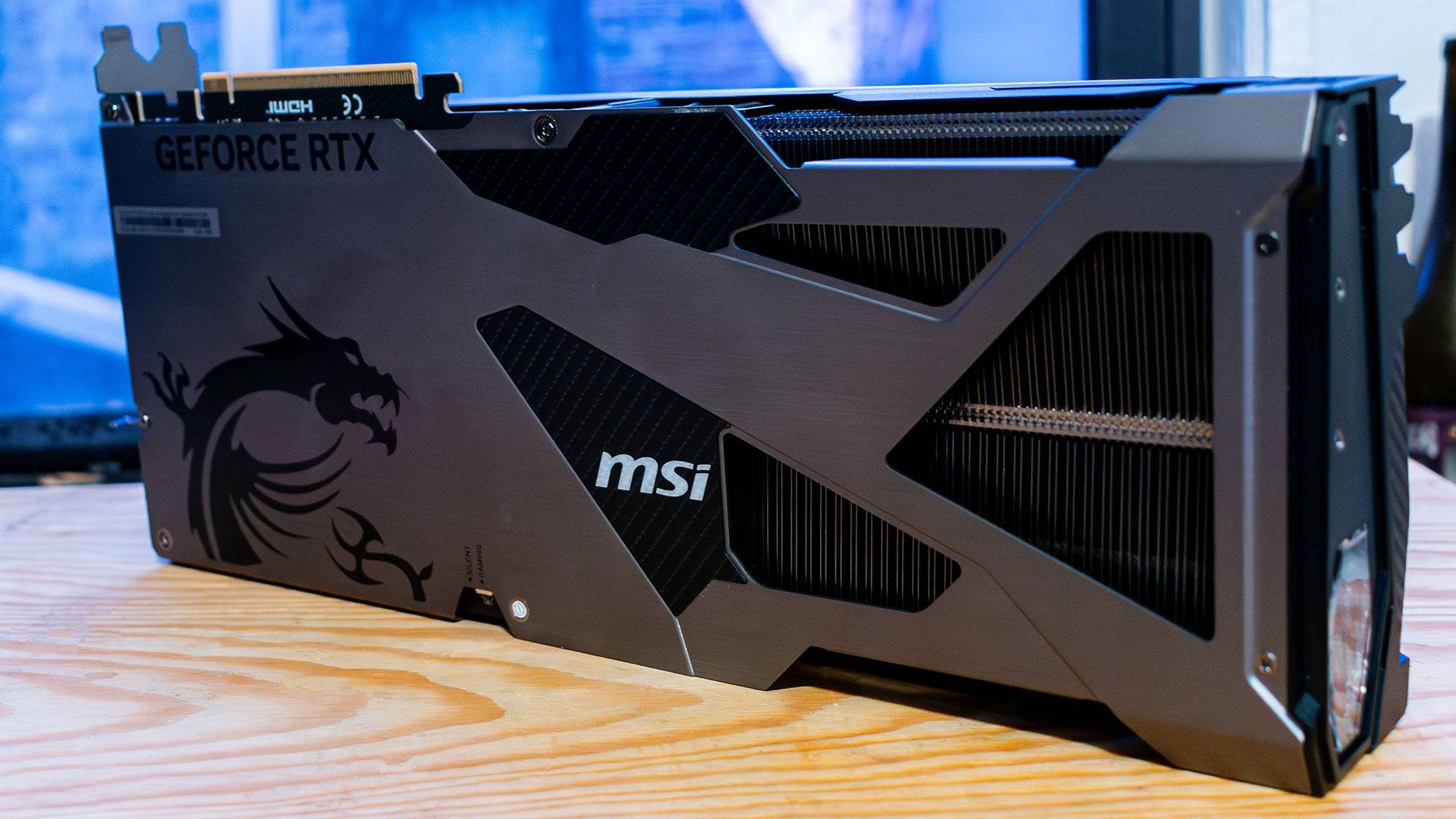
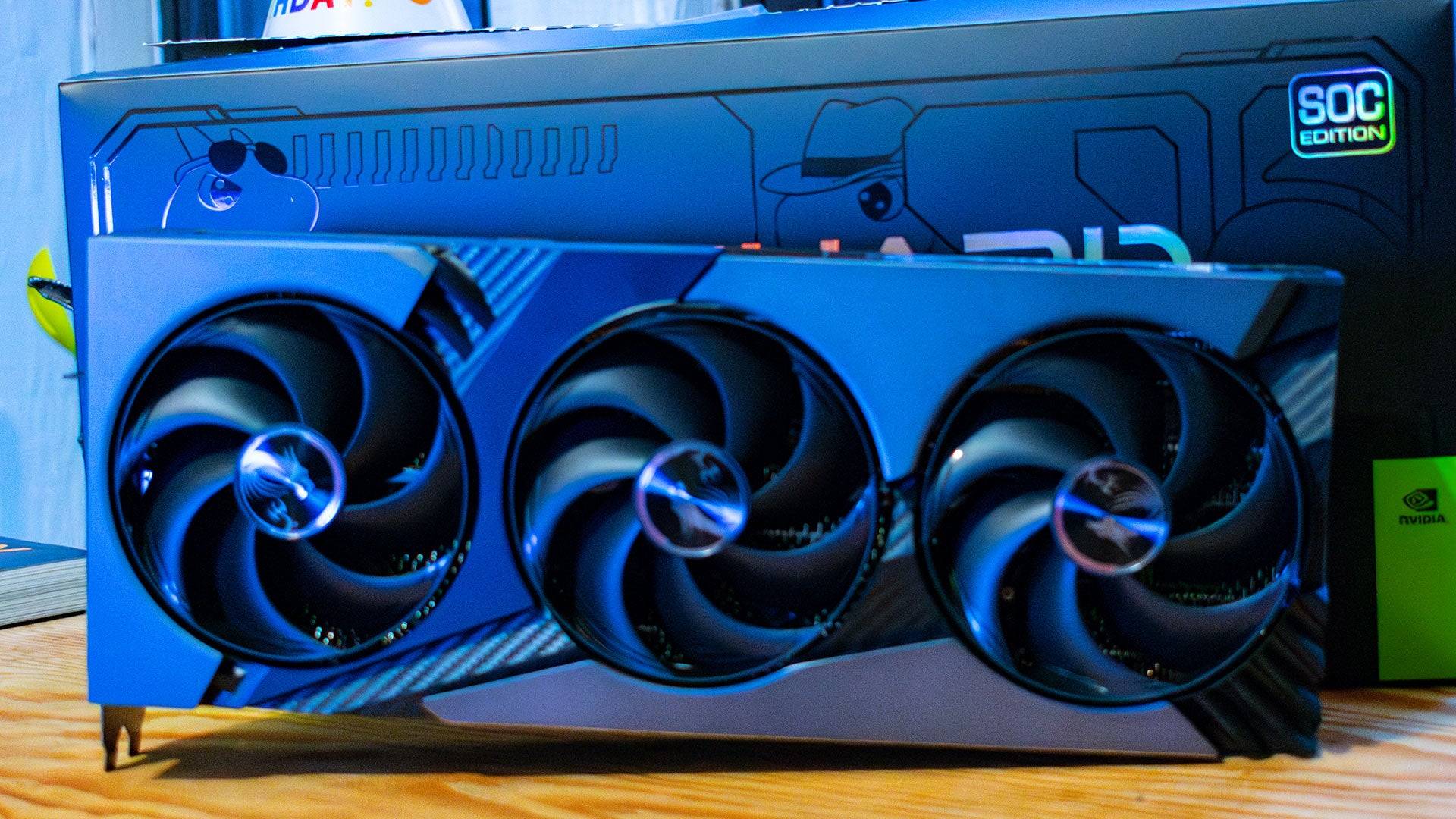 6 Images
6 Images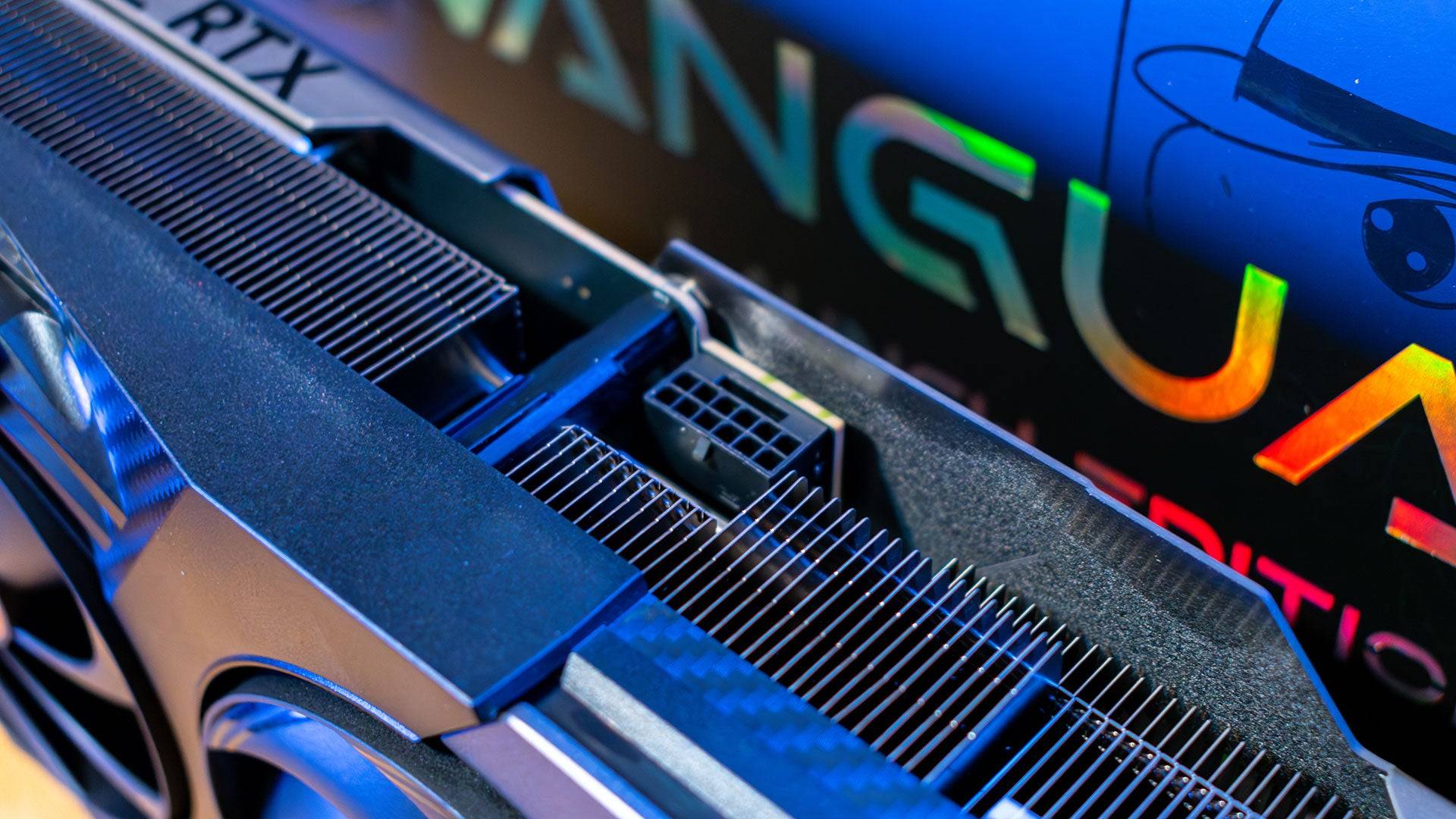
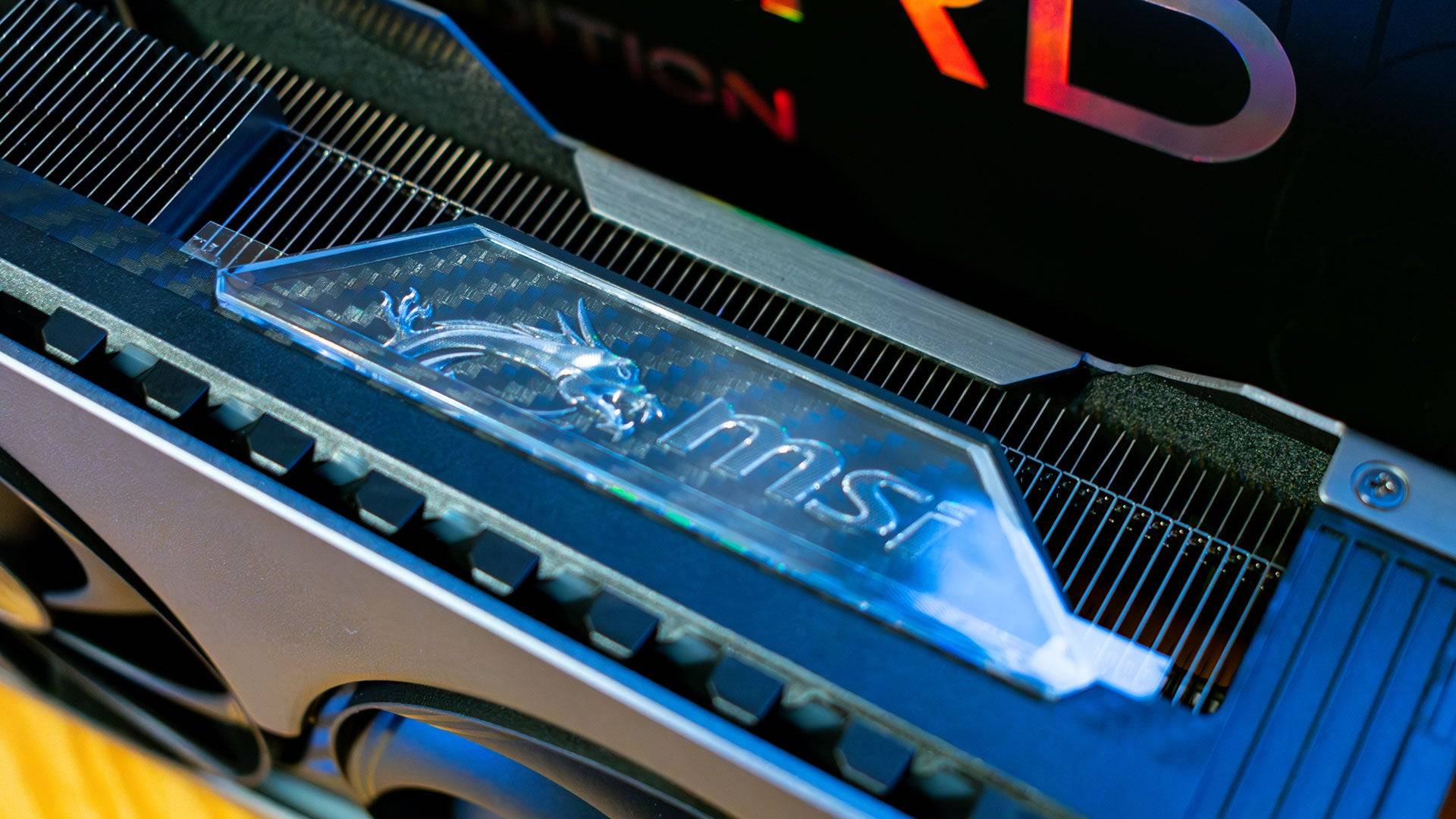
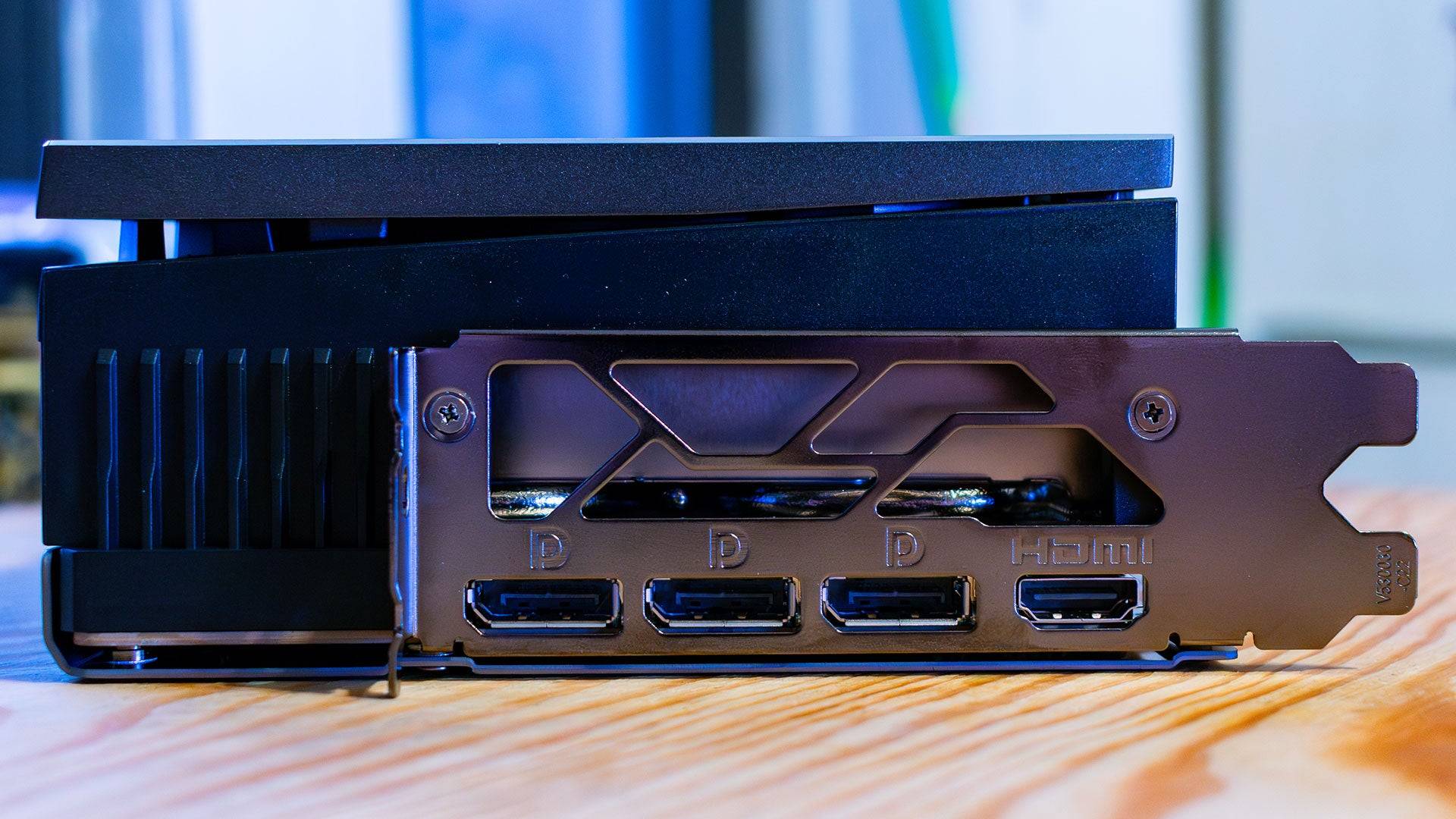

Specs and Features
The Nvidia GeForce RTX 5070 Ti marks the third entry in Nvidia's Blackwell architecture lineup, initially developed for AI supercomputers like those powering ChatGPT. This architecture has been adapted for gaming GPUs while retaining significant AI capabilities. The RTX 5070 Ti shares the GB203 GPU with the RTX 5080 but with 14 of its streaming multiprocessors (SM) disabled, resulting in 70 SMs, 8,960 CUDA cores, 70 RT cores, and 280 Tensor Cores. It also features 16GB of GDDR7 RAM, albeit slightly slower than the RTX 5080. The Tensor Cores are pivotal, enhancing AI-driven features like upscaling and frame generation, which Nvidia heavily relies on to boost performance.
A new addition, the AI Management Processor (AMP), further optimizes the GPU's workload distribution, previously managed by the CPU, enhancing the efficiency of processes like DLSS and frame generation. This efficiency has allowed Nvidia to revamp DLSS, now using a Transformer model rather than a Convolutional Neural Network (CNN), improving image quality by reducing ghosting and artifacts. DLSS 4 introduces Multi-Frame Generation (MFG), which can generate up to three frames from each rendered frame, potentially quadrupling frame rates, though with increased latency that Reflex technology aims to mitigate.
With a Total Board Power of 300W, the RTX 5070 Ti is only marginally more power-hungry than its predecessors, the RTX 4070 Ti and RTX 4070 Ti Super, both at 285W. Nvidia suggests a 750W power supply, but for safety, an 850W PSU is advisable, especially for high-end models like the MSI Vanguard Edition I reviewed.

DLSS 4 – Is It Worth It?
Nvidia's primary selling point for the RTX 5070 Ti is DLSS 4, particularly its Multi-Frame Generation capability. This technology is ideal for high-refresh-rate gaming monitors, enhancing frame rates without significantly improving latency. MFG analyzes rendered frames and motion data to predict and generate new frames, up to three per rendered frame, theoretically increasing frame rates by up to 4x.
In testing with Cyberpunk 2077 on the Ray Tracing Overdrive preset with DLSS set to performance, the RTX 5070 Ti achieved 46 fps with 43ms latency. Activating 2x frame generation boosted this to 88 fps, with latency increasing to 49ms, even with Reflex enabled. At 4x frame generation, the frame rate reached 157 fps, but latency rose to 55ms, reflecting a 3.4x frame rate increase with higher latency.
In Star Wars Outlaws at 4K Max settings with DLSS on performance, the RTX 5070 Ti delivered 67 fps. With 2x frame generation, this increased to 111 fps, and latency decreased from 47ms to 34ms, thanks to Reflex. However, 4x frame generation pushed the frame rate to 188 fps, with latency rising to 37ms.
Multi-Frame Generation enhances visual smoothness on high-refresh displays but doesn't necessarily improve responsiveness. The increase in latency is minimal if the baseline frame rate is high, ensuring smooth gameplay without noticeable lag or artifacts, especially at 4K resolutions.
Nvidia GeForce RTX 5070 Ti – Benchmarks
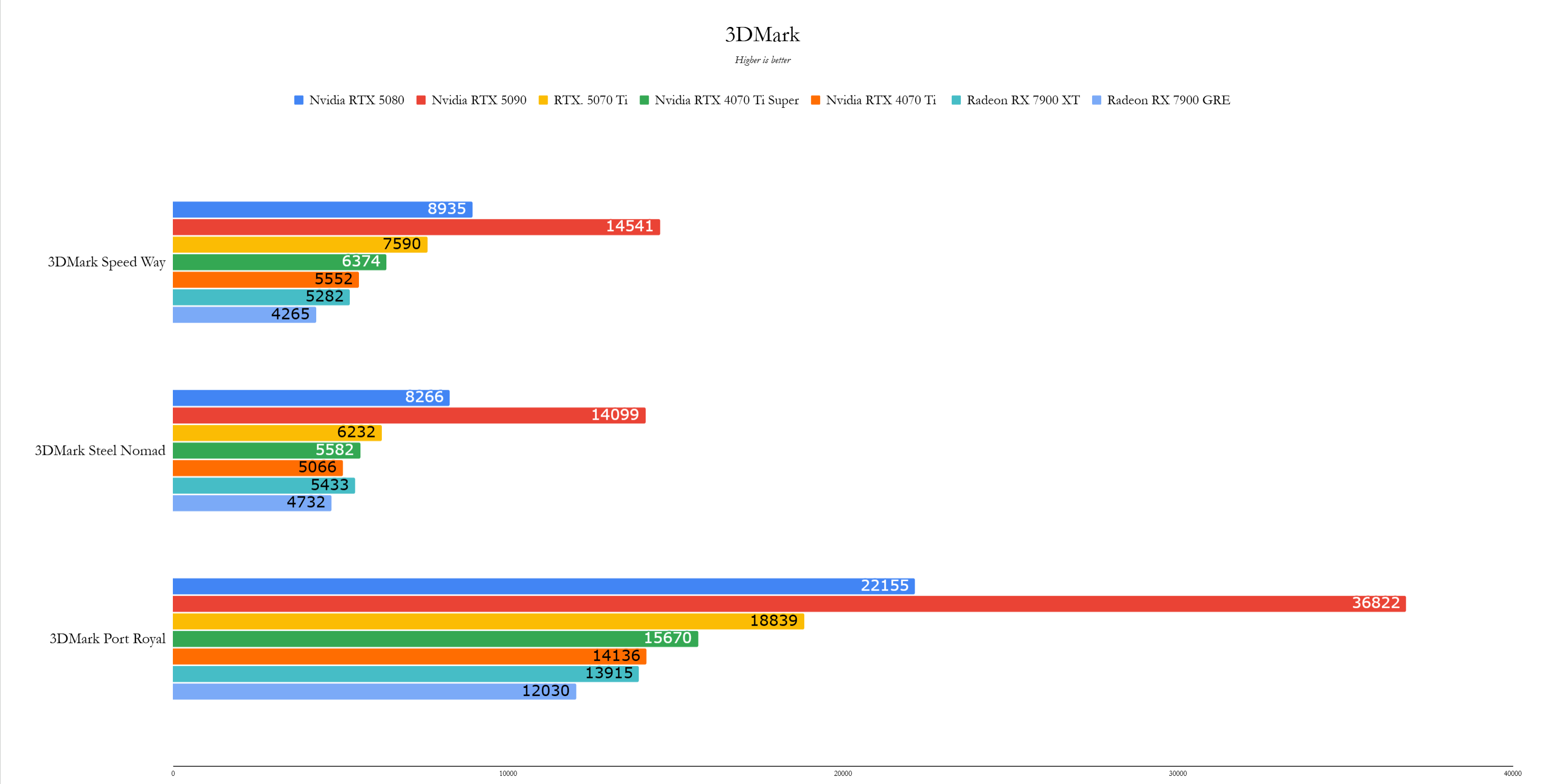
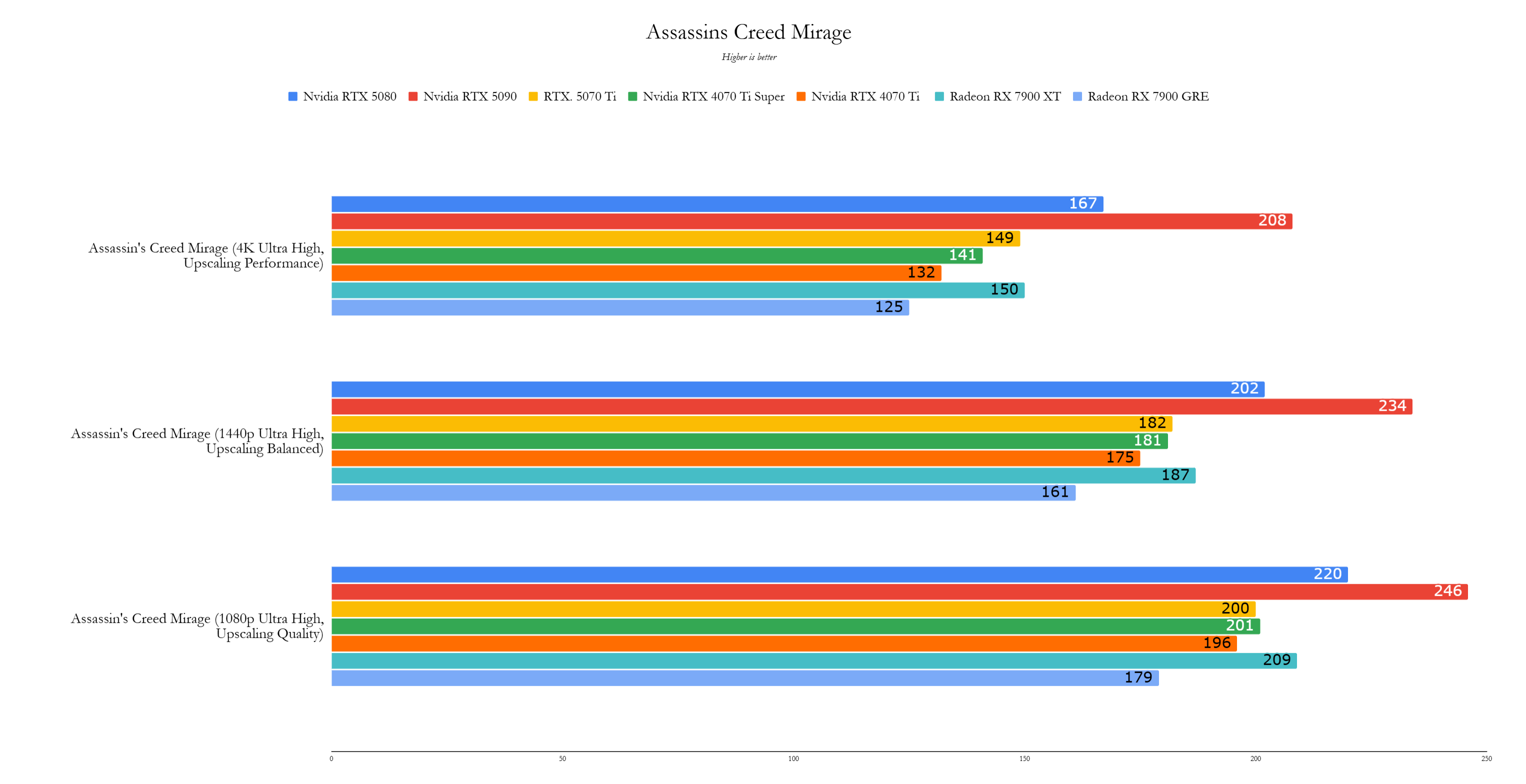 12 Images
12 Images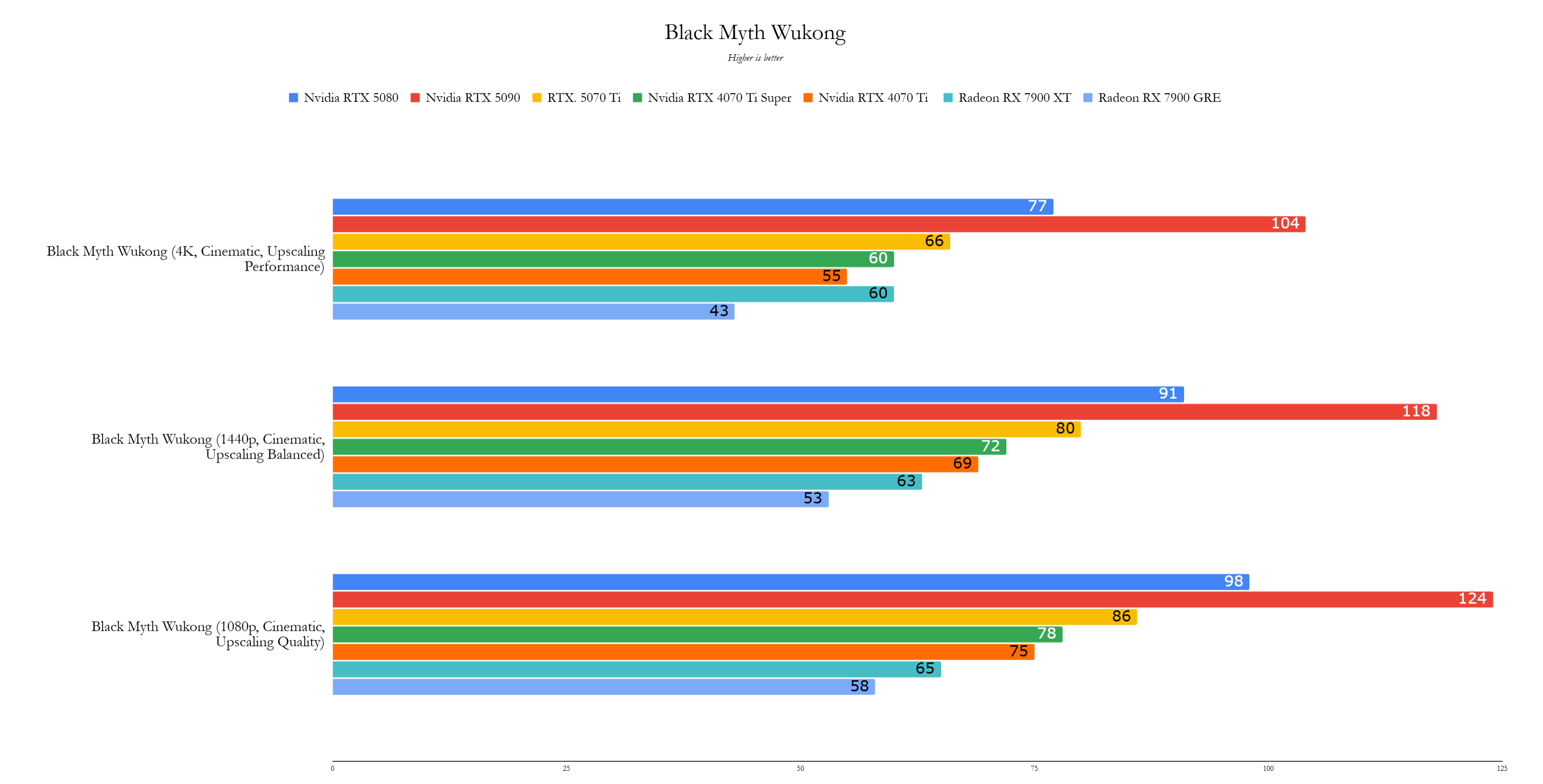
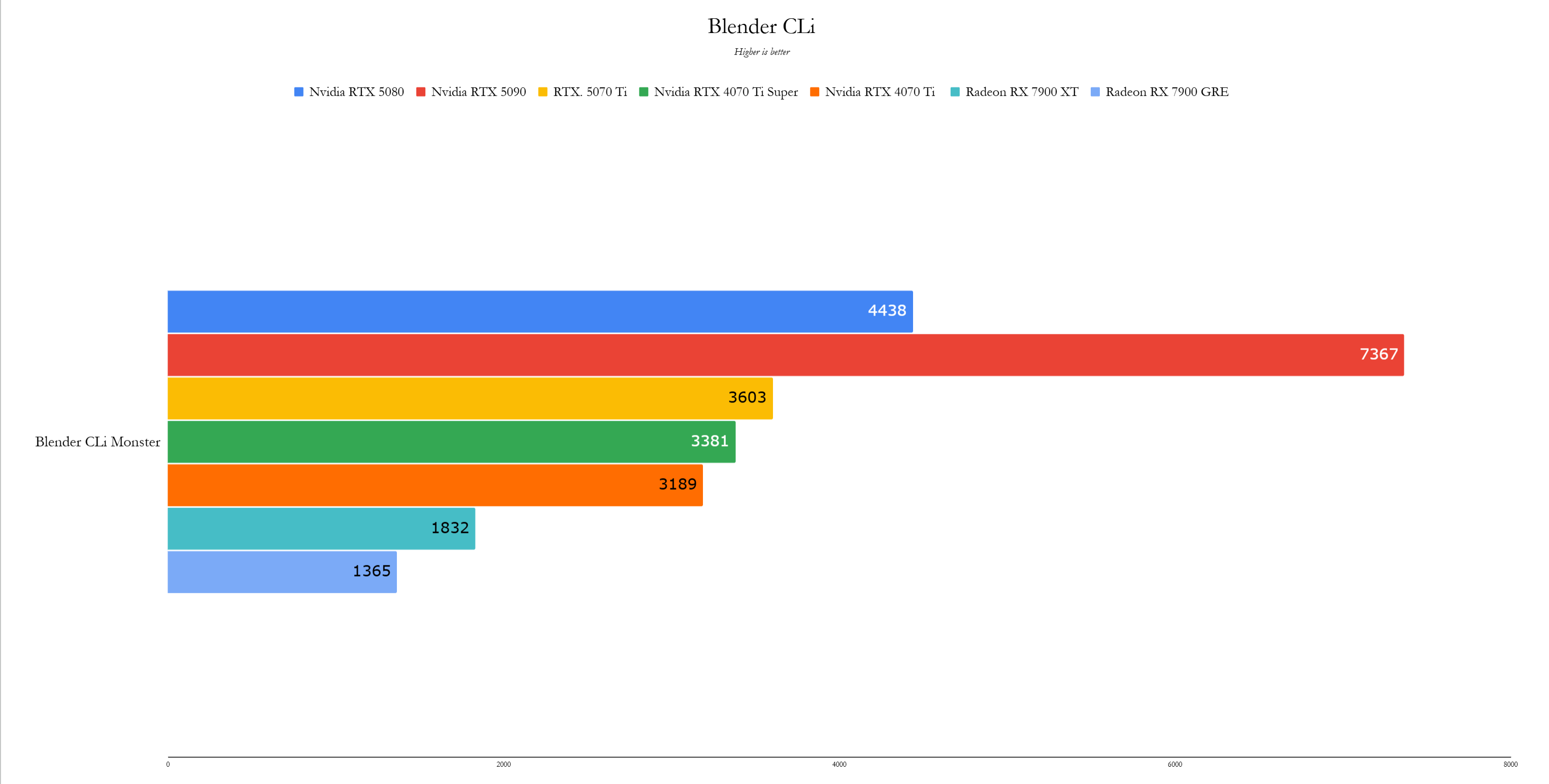
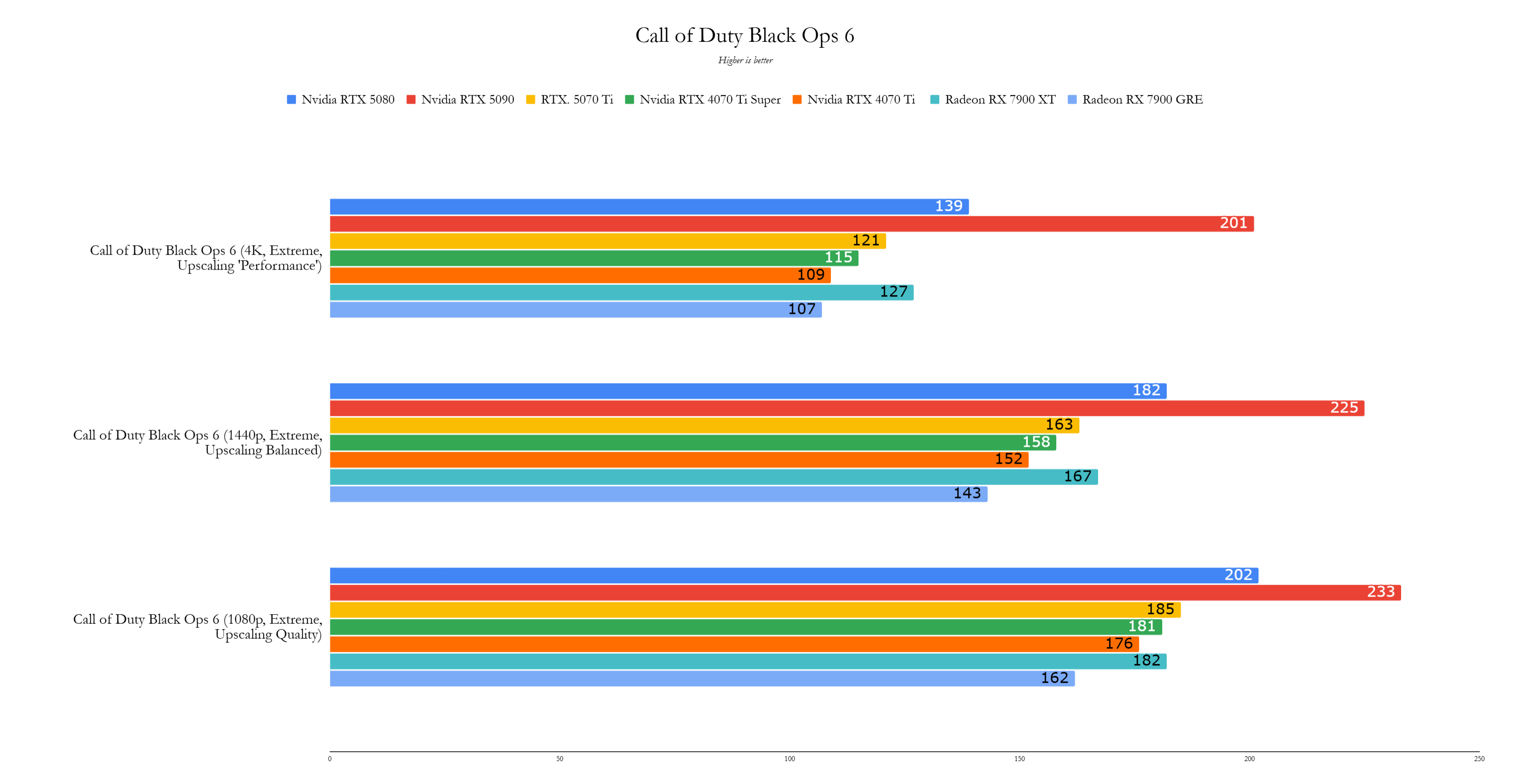
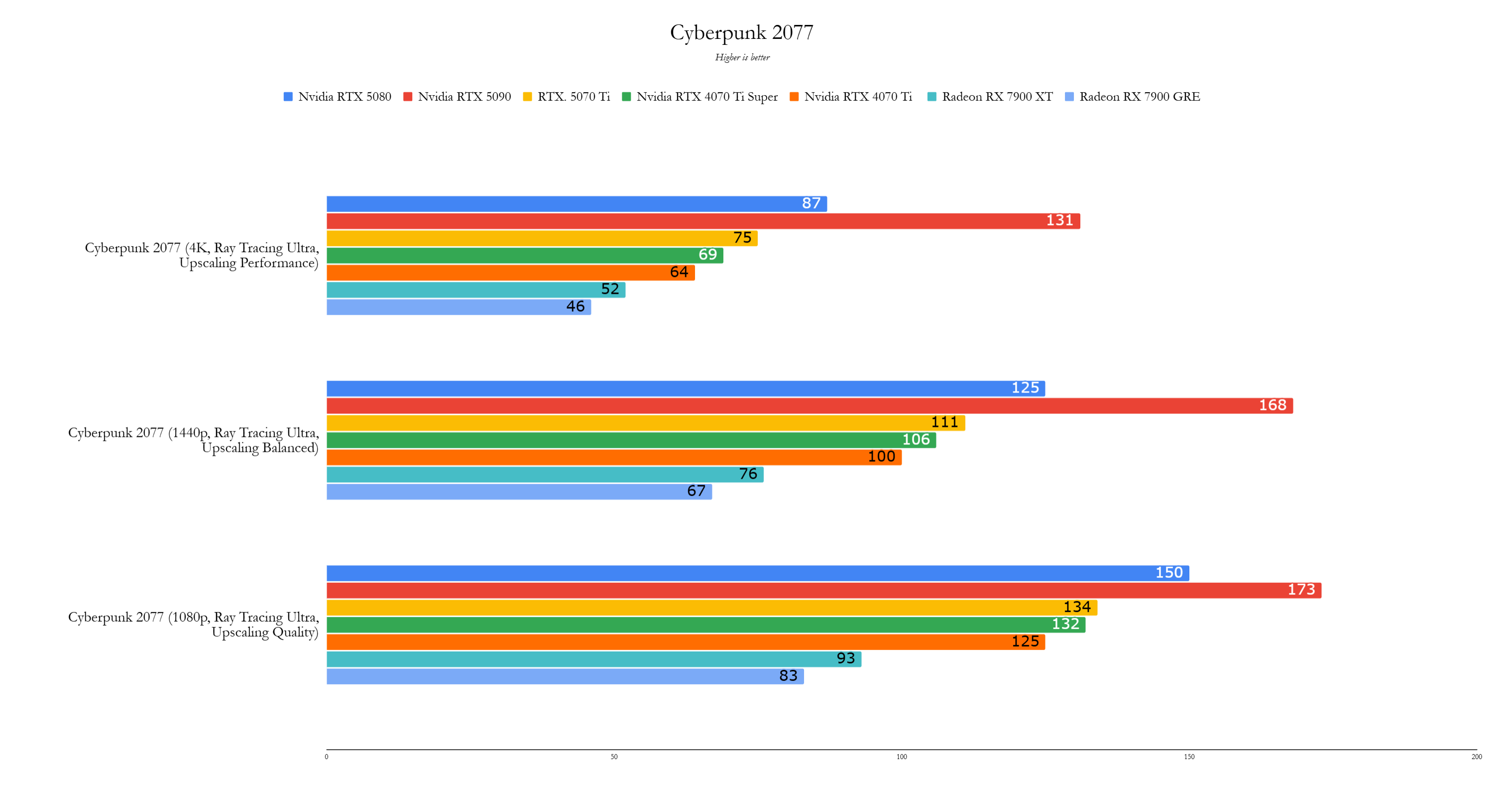
Performance
At 4K, the RTX 5070 Ti outperforms the RTX 4070 Ti Super by 11% and the RTX 4070 Ti by 21%, marking a significant generational improvement over the RTX 5080. It consistently achieved over 60 fps in demanding titles like Black Myth Wukong and Cyberpunk 2077.
My test system included an AMD Ryzen 7 9800X3D, Asus ROG Crosshair X870E Hero motherboard, 32GB G.Skill Trident Z5 Neo RAM at 6,000MHz, a 4TB Samsung 990 Pro SSD, and an Asus ROG Ryujin III 360 CPU cooler. I evaluated the RTX 5070 Ti at stock settings without overclocking to reflect typical performance at the $749 MSRP. All tests used the latest game versions and drivers, with the RTX 5070 Ti tested on a prerelease driver. Frame generation was disabled, and upscaling was utilized where both DLSS and FSR were supported.
In 3DMark Speed Way, the RTX 5070 Ti scored 7,590 points, significantly outperforming the RTX 4070 Ti Super's 6,374 and the RTX 4070 Ti's 5,552. In Port Royal, it achieved 18,839 points compared to 15,670 and 14,136 for the RTX 4070 Ti Super and RTX 4070 Ti, respectively.
In actual gameplay, the RTX 5070 Ti delivered 121 fps in Call of Duty: Black Ops 6 at 4K Extreme, a modest 5% improvement over the RTX 4070 Ti Super. In Cyberpunk 2077, it led by 9% over the RTX 4070 Ti Super and 17% over the RTX 4070 Ti, maintaining 75 fps at 4K with Ray Tracing Ultra. Metro Exodus: Enhanced Edition saw the RTX 5070 Ti achieving 48 fps at 4K on the Extreme preset, outperforming the RTX 4070 Ti Super's 45 fps and the RTX 4070 Ti's 42 fps. In Red Dead Redemption 2, it was slightly slower than the RTX 4070 Ti Super, achieving 113 fps compared to 115 fps.
Total War: Warhammer 3, without ray tracing or upscaling, showcased the RTX 5070 Ti's rasterization prowess, achieving 78 fps at 4K, a 15% improvement over the RTX 4070 Ti Super and 30% over the RTX 4070 Ti. In Assassin's Creed Mirage, it managed 149 fps at 4K Ultra High, slightly trailing the Radeon RX 7900 XT's 150 fps. Black Myth Wukong saw the RTX 5070 Ti averaging 66 fps at 4K with the Cinematic Preset and 40% DLSS, a 10% improvement over the RTX 4070 Ti Super. Forza Horizon 5, a fast-paced title, saw the RTX 5070 Ti achieving 152 fps at 4K Extreme, a 15% improvement over the RTX 4070 Super and 21% over the RTX 4070 Ti, even surpassing the Radeon RX 7900 XT by 10%.
In the current gaming landscape, even mid-range cards like the RTX 5070 Ti are capable of delivering excellent 4K performance. If you can purchase it at the base price of $749, the Nvidia GeForce RTX 5070 Ti offers exceptional value, particularly for 4K gaming, providing a significant generational uplift over its predecessor at a lower cost than the RTX 4070 Ti.
-
1

Top Streaming Platforms for Live Sports in 2025
Jun 18,2025
-
2

GTA 6 Set for Fall 2025 Release, CEO Confirms
Apr 03,2025
-
3

First ALGS in Asia Emerges in Japan
Jan 19,2025
-
4

Roblox: CrossBlox Codes (January 2025)
Mar 04,2025
-
5
![Roblox Forsaken Characters Tier List [UPDATED] (2025)](https://img.jdzca.com/uploads/18/17380116246797f3e8a8a39.jpg)
Roblox Forsaken Characters Tier List [UPDATED] (2025)
Mar 05,2025
-
6

Introducing the Ultimate Guide to Seamless Character Swapping in Dynasty Warriors: Origins
Feb 25,2025
-
7
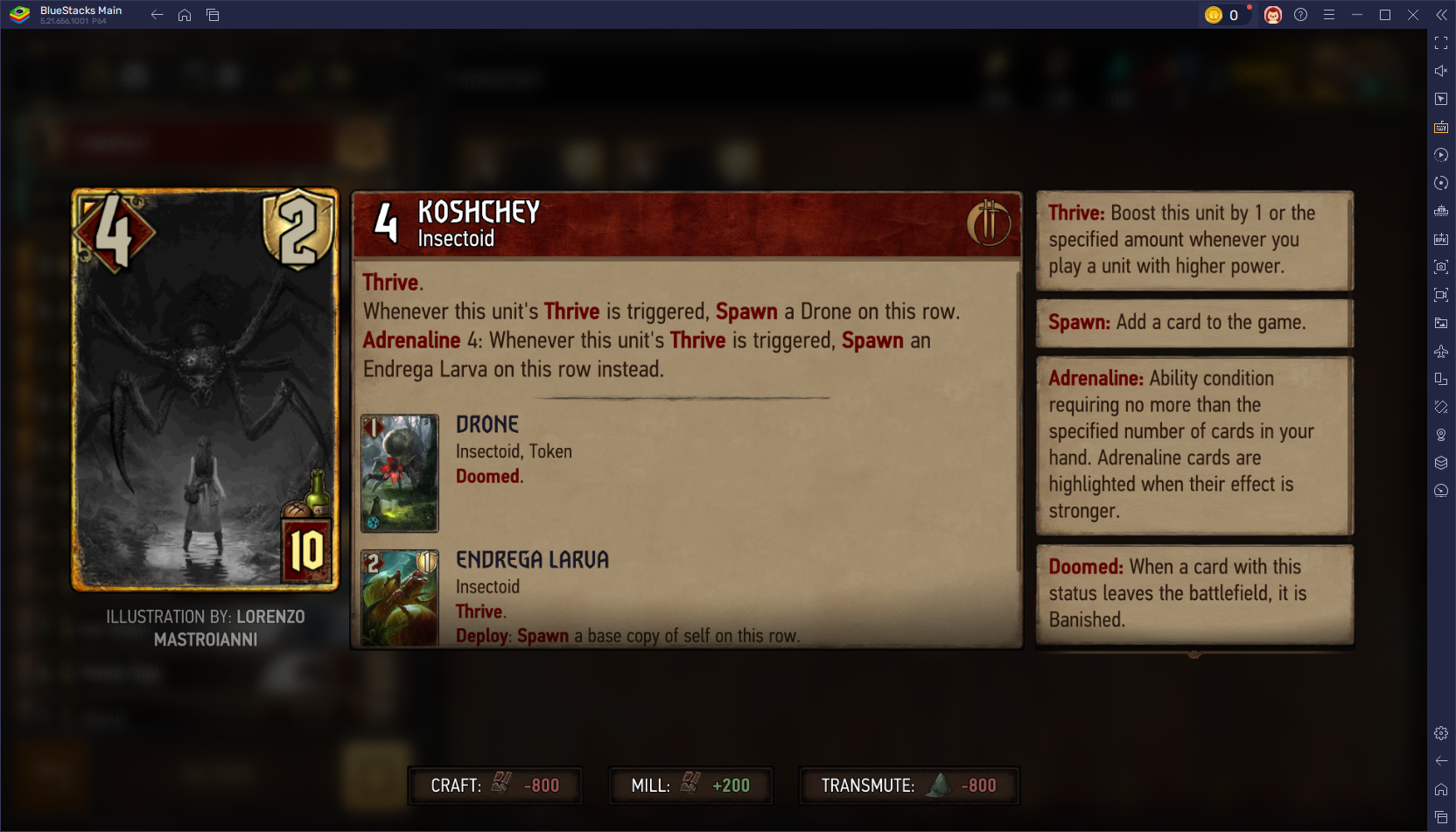
Gwent: Top 5 Witcher Decks (2025 Update)
Mar 13,2025
-
8

Max Hunter Rank in Monster Hunter Wilds: Tips to Increase
Apr 04,2025
-
9

Cute mobs in Minecraft: pink pigs and why they are needed
Mar 06,2025
-
10

Capcom Spotlight Feb 2025 Showcases Monster Hunter Wilds, Onimusha and More
Apr 01,2025
-
Download

Portrait Sketch
Photography / 37.12M
Update: Dec 17,2024
-
Download

Friendship with Benefits
Casual / 150.32M
Update: Dec 13,2024
-
Download

F.I.L.F. 2
Casual / 352.80M
Update: Dec 20,2024
-
4
[NSFW 18+] Sissy Trainer
-
5
Pocket Touch Simulation! for
-
6
슬롯 마카오 카지노 - 정말 재미나는 리얼 슬롯머신
-
7
Chubby Story [v1.4.2] (Localizations)
-
8
Life with a College Girl
-
9
Shuffles by Pinterest
-
10
Hunter Akuna














